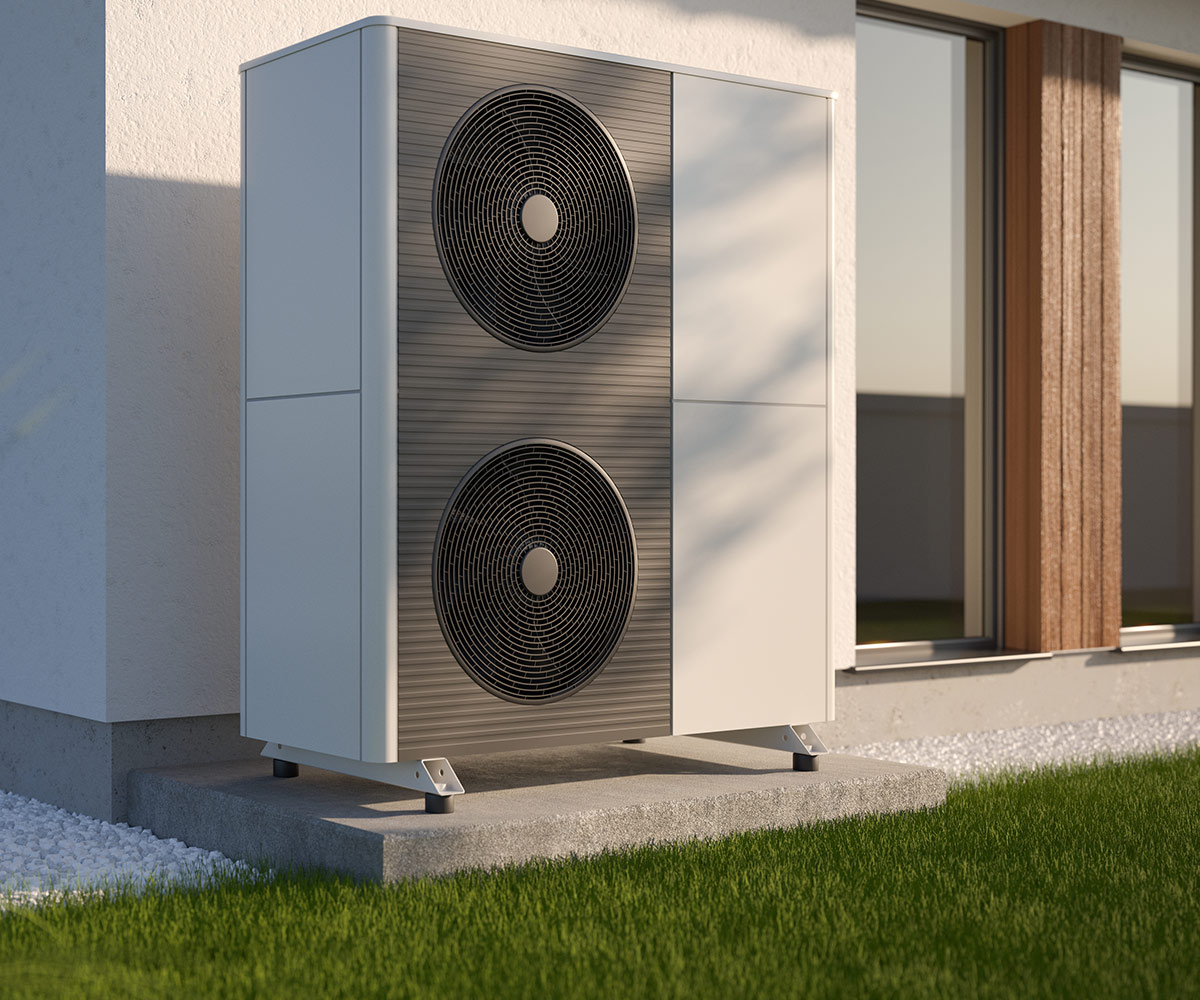Air Source Heat Pumps are a popular and efficient heating solution for many households, providing warmth and comfort while reducing carbon emissions. When it comes to installing an Air Source Heat Pump, one of the key considerations is determining the best position for optimal performance. We will always advise on the best positioning of where the pump should be positioned.
Solar panels have become increasingly popular as a sustainable and cost-effective way to generate electricity for homes. However, one of the challenges of solar energy is that it is intermittent, depending on factors such as weather conditions and the time of day.
An Air Source Heat Pump extracts heat from the outside air and distributes it throughout the house through various heating systems such as underfloor heating, radiators, and convectors.
Air source heat pumps have gained popularity as a greener and more energy-efficient heating system. They absorb heat from the outside air and use it to heat radiators, underfloor heating systems, and hot water for your home.
Solar panels are the most prevalent household renewable energy source in the UK, with rooftop panels being installed on many buildings across the country. Solar panels collect the sun’s energy and converts it to electricity for use in your home.
The Coefficient of Performance (COP) is a fundamental concept that measures the efficiency of a system in transferring energy. For ASHPs, the COP represents the ratio of the heat energy generated to the electricity consumed.
A popular question we often get asked is how noisy are Air Source Heat Pumps? Most of us have heard the loud, unpleasant sound that an air conditioner makes as we have walked past one. That is not the case with the Air Source Heat Pumps that we install, though.
Solar energy is rapidly gaining popularity as a sustainable and cost-effective solution for powering homes and businesses. With the advancement of technology, solar panels have become more efficient and affordable, making them an attractive option for those looking to reduce their carbon footprint and save on electricity bills.
In an effort to accelerate the decarbonisation of buildings, the Boiler Upgrade Scheme (BUS) is launched in Spring 2022. This scheme aims to provide upfront capital grants to support the installation of low-carbon heating technologies, such as Heat Pumps and biomass boilers, in homes and select non-domestic buildings.
Solar panels have become increasingly popular as a renewable energy source, with more and more homes opting to generate their own solar electricity. If you’re considering installing solar panels, you likely have some questions that need answering before making the investment.











